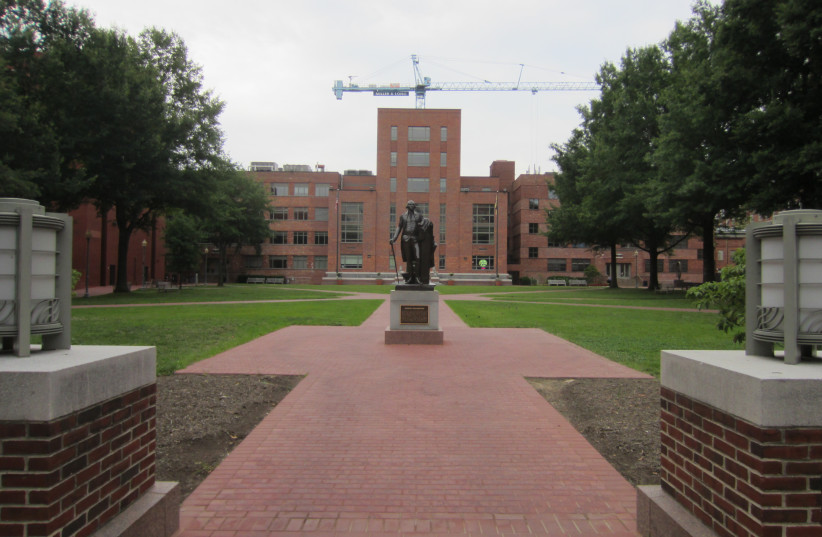Little more than a week after it dismissed allegations of antisemitism against one of its professors, George Washington University will face a federal investigation over the same allegations.
The US Department of Education’s Office for Civil Rights will open an investigation into a federal discrimination complaint brought against the university by the pro-Israel group StandWithUs, the group said. The complaint alleges that the university did not properly respond to student reports of the professor, who teaches graduate-level psychology, making antisemitic comments in class and bringing in a guest speaker who expressed anti-Zionist views.
Opening an investigation does not necessarily mean that the department believes the complaint has merit, but pro-Israel activists still celebrated it as a symbolic victory.
The news came nine days after the university’s own investigation into the matter, conducted by a third party, had determined that student allegations of antisemitism were unfounded. The university’s investigation was also prompted by the StandWithUs complaint, but its interviews with students and reviews of recorded lectures could not corroborate any of the allegations. The investigation concluded, in addition, that StandWithUs’ definition of antisemitism “could infringe on free speech principles and academic freedom.”
The StandWithUs complaint alleges that the university did not properly respond when Israeli students said the professor, Lara Sheehi, had made dismissive comments to them, including telling one, “It’s not your fault you were born in Israel.” The students also said the professor had brought in a guest speaker for an optional lecture who expressed anti-Zionist views, and that Sheehi did not acknowledge that they felt targeted by the talk.

Sheehi has denied the allegations and accused the university of having “colluded” with StandWithUs. The university’s third-party investigation could not corroborate whether she had made the comments in question. It did find that Sheehi had “repeatedly acknowledged the students’ feelings.” The federal investigation is concerned only with whether the university responded appropriately to the student complaints.
Attracting supporters and detractors
The case has attracted both supporters and detractors across the world of higher education. Sheehi has garnered support from academic groups including the Middle East Studies Association. Meanwhile, Jewish groups have pointed to other reported instances of antisemitic behavior on George Washington’s campus over the last couple of years, including graffiti outside the campus Hillel and a damaged imitation Torah at a Jewish fraternity.
StandWithUs trumpeted the news of the federal investigation as a refutation of the university investigation’s findings. Like other pro-Israel groups that have filed legal complaints, the organization has petitioned the Department of Education to explicitly define anti-Zionist speech as antisemitic.
“University administrators have an affirmative obligation to respond adequately when students report allegations of such misconduct,” StandWithUs CEO Roz Rothstein said in a statement, which added that the Department of Education’s civil rights office “has recognized the need to investigate these allegations in a thorough and unbiased manner.”
The Department of Education has been playing a more active role in adjudicating campus disputes over antisemitism allegations since the Donald Trump administration expanded the department’s civil rights mandate in 2019 under Title VI of the Civil Rights Act, which prohibits discriminatory behavior at federally-funded programs or institutions, such as public universities. Earlier this week, the office reached a resolution with the University of Vermont over a separate case, finding that administrators had failed to respond adequately to reports of antisemitism on campus — including an anti-Zionist speech from students and teaching assistants.
